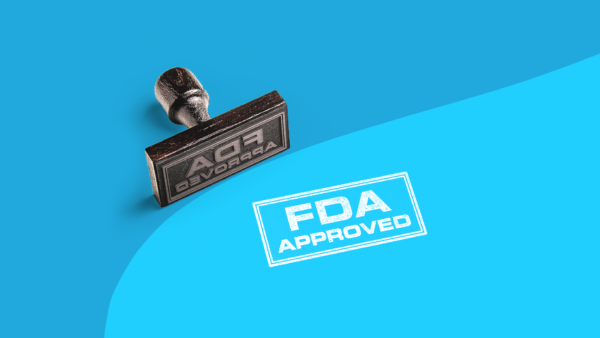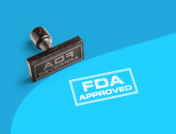Common Cosentyx side effects | Serious side effects | Allergic reactions | How long do side effects last? | Warnings | Interactions | How to avoid side effects
Cosentyx is the brand name for the biologic drug secukinumab. Cosentyx is a first-in-class human monoclonal antibody that directly inhibits interleukin-17A (IL-17A). Overexpression of IL-17A in the joints results in increased joint inflammation, increased cartilage degradation, and increased bone erosion. Within the skin, IL-17A promotes inflammation and overproduction of proliferative cells. By blocking the activity of IL-17A, Cosentyx is used in the treatment of moderate to severe plaque psoriasis, active psoriatic arthritis, active ankylosing spondylitis, and non-radiographic axial spondyloarthritis.
Manufactured by Novartis, Cosentyx has been approved by the Food and Drug Administration (FDA) for use in adults and children as young as 6 years of age who are candidates for systemic therapy or phototherapy. Cosentyx is not an over-the-counter medication. Cosentyx is an injectable medication available for home use as a Sensoready pen or a prefilled syringe that should only be used when prescribed by a licensed healthcare professional.
Biologic medications like Cosentyx can suppress the immune system and result in serious side effects. In this article, we will talk about the potential side effects associated with Cosentyx use and how to avoid them as well as important warnings and drug interactions.
RELATED: What is Cosentyx?
Common side effects of Cosentyx
As with any medication, it is possible that individuals who use Cosentyx may experience common side effects. If any of these side effects become bothersome, notify your healthcare provider.
- Nasopharyngitis, a viral infection of the nose and/or throat with symptoms like a stuffy nose, runny nose, and sore throat
- Neutropenia, a low white blood cell count
- Diarrhea
- Upper respiratory tract infections
- Opportunistic infections, including yeast infections throughout the body or in the mouth (thrush)
- Other infections
- Redness or irritation around the injection site
Serious side effects of Cosentyx
Some of the possible side effects associated with Cosentyx use could be severe and possibly life-threatening. It is important to seek medical attention if any of the following severe signs and symptoms are experienced.
- Hypersensitivity reactions including life-threatening, serious allergic reactions or anaphylaxis
- Inflammatory bowel disease
- Serious infections, which could be life-threatening
- Toxic shock syndrome
- Neutropenia, a low white blood cell count
- Sepsis, a life-threatening complication from infection
Signs of an allergic reaction that require medical help include:
- Hives or an itchy skin rash
- Swelling under the skin or in the face
- Pale, cold skin or clammy skin
- Flushing, fever or unprovoked sweating and shaking
- Itching, swelling or edema in the mucous membranes like the eyes, nose, tongue, lips or mouth
- Nausea, vomiting or diarrhea
- Shortness of breath, trouble breathing, rapid breathing, wheezing or coughing
- Difficulty swallowing or speaking
- Rapid heart beating
- Weak pulse
- Fainting, dizziness, lightheadedness, collapsing or losing consciousness
- Mental confusion or agitation
How long do Cosentyx side effects last?
Some common side effects associated with Cosentyx use, such as diarrhea, will usually resolve within a few days to weeks of taking the medication. Most viral infections of the upper respiratory tract will also resolve on their own after several days and require only supportive care. Other side effects may persist throughout the duration of treatment such as injection site irritation and increased risk for infections. Allergic reactions may be fatal and should be addressed immediately in a healthcare setting.
Cosentyx contraindications and warnings
Cosentyx is not habit-forming or addictive. There are also no withdrawal symptoms associated with Cosentyx use. Although, data from pooled clinical trials has shown that discontinuation of the medication may result in a return of symptoms.
The maximum dosage of Cosentyx is 300 mg taken every four weeks. Taking too much of this medication may result in severe immunosuppression. Only take the dose of Cosentyx that is recommended by your healthcare provider.
This medication is absolutely contraindicated for use in individuals with known hypersensitivity to the drug or any of its components. This medication should be used with extreme caution in the populations described below.
History of chronic infections
Cosentyx use is known to be associated with serious infections. Individuals with conditions that put them at risk of infections or individuals with a history of recurrent infections should use caution when considering use of this medication. If signs of infection occur while taking this medication, discontinue Cosentyx until the infection resolves.
Tuberculosis
Cosentyx should not be used in individuals with active tuberculosis (TB) infection. Individuals should be tested for TB infection prior to taking this medication.
Inflammatory bowel disease
Caution should be used when considering Cosentyx use in individuals with ulcerative colitis (UC) or Crohn’s disease. IL-17 blockade is known to interrupt the intestinal barrier, worsen gut inflammation, and increase susceptibility to intestinal infections, especially with fungi and yeast. Serious exacerbations and flare-ups were known to occur in individuals with inflammatory bowel disease when treated with Cosentyx for plaque psoriasis, psoriatic arthritis, or ankylosing spondylitis.
Additionally, the initial clinical trials showed occurrence of new-onset inflammatory bowel disease as well as increased and more severe side effects in individuals with known inflammatory bowel disease. Individuals should be monitored for signs and symptoms of inflammatory bowel disease while taking this medication.
Latex hypersensitivity
The removable cap of the Cosentyx Sensoready pen and the prefilled syringe contain natural rubber latex which may cause an allergic reaction in latex sensitive individuals. This latex does not come in contact with the medication and is not a component of the medication, thus it is safe for use in individuals with latex allergy. It is recommended that susceptible individuals wear gloves when handling or administering this medication.
Pregnancy and breastfeeding
Adequate trials have not been performed in pregnant or nursing women. Developmental toxicity studies in animals have shown no evidence of harm to the developing fetus. It is not known if secukinumab is excreted in human milk. Due to lack of adequate safety information in these populations, Cosentyx should only be used during pregnancy or in nursing mothers when the benefit to the mother justifies the risk to the infant.
Cosentyx interactions
There are severe drug interactions individuals taking Cosentyx should be aware of.
Live vaccines
Individuals taking Cosentyx should not receive any of the following live vaccines:
- Adenovirus vaccine
- BCG intravesical vaccine
- Cholera vaccine
- Influenza nasal vaccine
- MMR (measles/mumps/rubella) vaccine
- Rotavirus vaccine
- Smallpox vaccine
- Typhoid vaccine
- Varicella vaccine
- Yellow fever vaccine
The COVID-19 vaccines are not live vaccines. Discuss your COVID-19 vaccination status with your healthcare provider if you are currently taking or will be taking Cosentyx. Consider completing any age-appropriate vaccinations prior to initiating therapy with Cosentyx. Informed decision making should be used when considering any type of vaccine administration in immunocompromised individuals or individuals with suppressed immune systems secondary to medication use.
RELATED: Do immunosuppressants affect the COVID vaccine?
Imlygic
In addition to Cosentyx being contraindicated for use with any live vaccine, Cosentyx should not be used with Imlygic (talimogene laherparepvec). This medication is an oncolytic viral therapy that uses genetically modified herpes simplex virus to target and kill certain types of unresectable solid tumors. Individuals receiving therapy with Imlygic and Cosentyx may experience disseminated herpes infection with persistent ulceration, cold sores, and a severely decreased immune system. These medications should not be used together under any circumstances.
DMARDs
Use of Cosentyx with other biologic disease modifying antirheumatic agents (DMARDs) such as upadacitinib, tofacitinib, tocilizumab, or baricitinib is not recommended due to the possibility of increased immunosuppression and increased risk for serious infections. Methotrexate is often co-administered with drugs in this class but is not a biologic DMARD.
How to avoid Cosentyx side effects
1. It is important to follow medical advice while taking this medication
Take only the dose prescribed by a healthcare professional. Do not take more medication and do not take less. Take all of the doses how and when they are prescribed. If there is a missed dose, take the next dose as soon as you remember. Patients should continue taking the medication as prescribed even if they feel well after the first few doses.
2. Read the medication guide
This medication is administered as a subcutaneous injection. Your healthcare provider can demonstrate the correct way to administer this medication at home. This medication can be self administered or administered by a caregiver. Helpful tips as well as other important drug information can be found in the medication guide.
3. Do not discontinue this use of this medication without seeking medical advice
You should not discontinue the use of any medication unless you with your healthcare provider have decided that is the right decision.
4. Patients should disclose a full medication list, all medical conditions, and any allergies before taking Cosentyx
Cosentyx use is associated with life-threatening allergic reactions. It is important to disclose all medications and supplements, any medical conditions the patient has, or any allergic reactions to medications in the past in order to avoid a potential allergic response.
5. Store the medication correctly and out of the reach of children
Cosentyx should be stored in the refrigerator (36 to 46 degrees F) away from light. When it is time for medication administration, remove the medication from the refrigerator and allow it to reach room temperature (68 to 77 degrees Fahrenheit). Do not freeze or microwave this medication. This medication comes in a prefilled syringe or Sensoready pen. Do not use the product if the syringe contains cloudy fluid, discolored fluid, or any kind of particulate matter. After administration, do not store any unused portions for later use. Discard any excess medication.
6. Do not open the syringe or pen
This medication comes in a prefilled syringe or Sensoready pen that is ready to be used. Do not attempt to open the syringe or pen to remove the injectable liquid. Use the deployment mechanism as provided.
7. Use caution if you have a latex allergy
The cap of the medication packaging contains latex. Wearing gloves while handling the packaging may prevent any latex irritation. The latex-containing cap does not come into contact with the medication, so the medication inside is safe for individuals with latex allergies to use.
8. Patients should immediately seek medical care if they experience any type of allergic reaction to this medication
Allergic responses should be reported and treated as early as possible. Any type of serious allergic response should receive medical attention immediately.











